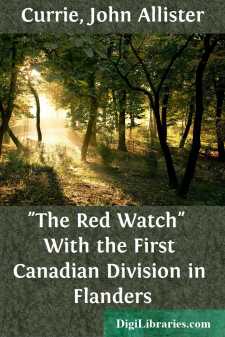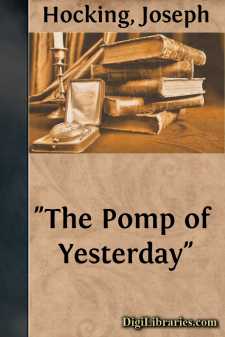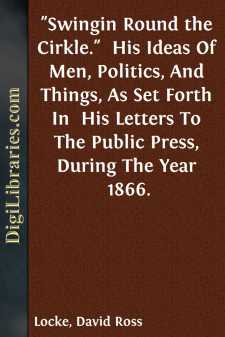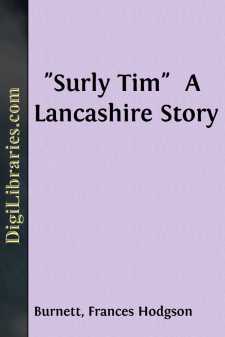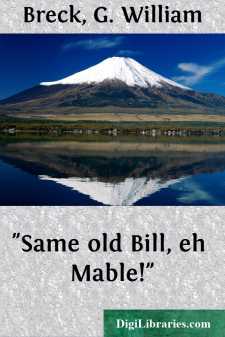Categories
- Antiques & Collectibles 13
- Architecture 36
- Art 48
- Bibles 22
- Biography & Autobiography 813
- Body, Mind & Spirit 142
- Business & Economics 28
- Children's Books 17
- Children's Fiction 14
- Computers 4
- Cooking 94
- Crafts & Hobbies 4
- Drama 346
- Education 46
- Family & Relationships 57
- Fiction 11829
- Games 19
- Gardening 17
- Health & Fitness 34
- History 1377
- House & Home 1
- Humor 147
- Juvenile Fiction 1873
- Juvenile Nonfiction 202
- Language Arts & Disciplines 88
- Law 16
- Literary Collections 686
- Literary Criticism 179
- Mathematics 13
- Medical 41
- Music 40
- Nature 179
- Non-Classifiable 1768
- Performing Arts 7
- Periodicals 1453
- Philosophy 64
- Photography 2
- Poetry 896
- Political Science 203
- Psychology 42
- Reference 154
- Religion 513
- Science 126
- Self-Help 84
- Social Science 81
- Sports & Recreation 34
- Study Aids 3
- Technology & Engineering 59
- Transportation 23
- Travel 463
- True Crime 29
Sort by:
PREFACE The kind reception given to the rough notes from the Author's Diary, which appeared first in the daily papers in Canada, encouraged the production of this book. These notes, in order to make them more readable, have been put in narrative form. There is no pretence that this is a history of the war. It is only a string of pen pictures describing life and incidents of the campaign common to...
more...
by:
Joseph Hocking
FOREWORD It is now fast approaching four years since our country at the call of duty, and for the world's welfare entered the great struggle which is still convulsing the nations of the earth. What this has cost us, and what it has meant to us, and to other countries, it is impossible to describe. Imagination reels before the thought. Still the ghastly struggle continues, daily comes the story of...
more...
by:
Louis Becke
"THE GALLANT, GOOD RIOU" This is a true story of one of Nelson's captains, he of whom Nelson wrote as "the gallant and good Riou"—high meed of praise gloriously won at Copenhagen—but Riou, eleven years before that day, performed a deed, now almost forgotten, which, for unselfish heroism, ranks among the brightest in our brilliant naval annals, and in the sea story of Australia...
more...
by:
David Ross Locke
I. After the New Jersey Election, 1865. Saint’s Rest(wich is in the State uv Noo Gersey),November, 9, 1865. Never wuz I in so pleasant a frame uv mind as last night. All wuz peace with me, for after bein buffeted about the world for three skore years, at last it seemed to me ez tho forchune, tired uv persekootin a unforchnit bein, hed taken me into favor. I hed a solemn promise from the Demekratic...
more...
"Sorry to hear my fellow-workmen speak so disparagin' o' me? Well, Mester, that's as it may be yo' know. Happen my fellow-workmen ha' made a bit o' a mistake—happen what seems loike crustiness to them beant so much crustiness as summat else—happen I mought do my bit o' complainin' too. Yo' munnot trust aw yo' hear, Mester; that's aw I can...
more...
by:
Paul Allardyce
INTRODUCTION The Use of Punctuation.—Punctuation is a device for marking out the arrangement of a writer's ideas. Reading is thereby made easier than it otherwise would be. A writer's ideas are expressed by a number of words arranged in groups, the words in one group being more closely connected with one another than they are with those in the next group. An example will show this grouping...
more...
Part I. "And some say, she expects to get him married to Rose Ellen before the year's out!" "I want to know if she does!" "Her sister married a minister, and her father was a deacon, so mebbe she thinks she's got a master-key to the Kingdom. But I don't feel so sure of her gettin' this minister for Rose Ellen. Some say he's so wropped up in his garden truck...
more...
by:
Warren Olney
Very interesting descriptions of the great battles of the late war, written by prominent generals, have been lately published and widely read. It seems to me, however, that it is time for the private soldier to be heard from. Of course, his field of vision is much more limited than that of his general. On the other hand, it is of vital importance to the latter to gloss over his mistakes, and draw...
more...
He came in one evening at sun set with the empty coal-train—his dull young face pale and heavy-eyed with weariness, his corduroy suit dusty and travel-stained, his worldly possessions tied up in the smallest of handkerchief bundles and slung upon the stick resting on his shoulder—and naturally his first appearance attracted some attention among the loungers about the shed dignified by the title of...
more...
by:
G. William Breck
"Same Old Bill, Eh Mable!" Dere Mable: Were in sunny France at last. I cant tell you much about it yet on account of its havin been so foggy since we got here. We didnt deboat in Paris as I was expectin. We sailed up a river to a town with a wall around it and got off there. I dont know what the wall was for unless to keep people in. They certinly wouldnt need one to keep anybody out of that...
more...


